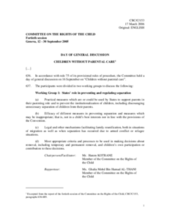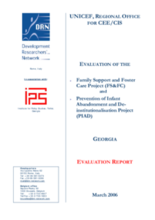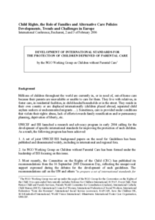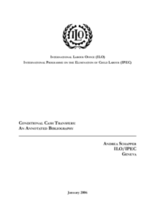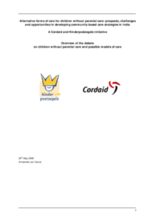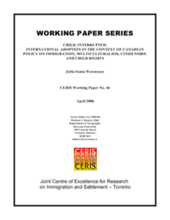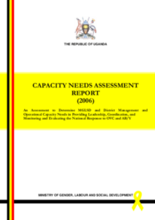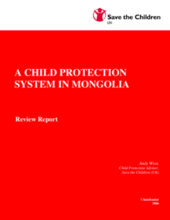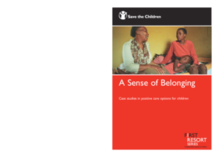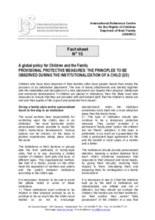Displaying 1621 - 1630 of 1798
The Committee on the Rights of the Child held a day of general discussion on 16 September on “Children without parental care”.
Assessment of two recently reformed child protection projects in Georgia (Prevention of Infant Abandonment and De-institutionalisation (PIAD) and Family Support and Foster Care (FS&FC)). Includes detailed evaluation methodology and lessons learned.
Presentation on the UN Guidelines on Alternative Care of Children.
This document contains a bibliography global conditional cash transfer documents.
Detailed examination of debate over institutional and alternative care methods for children without parental care. Includes comprehensive framework for collective action.
This paper examines how international adoption fits within the legal and conceptual framework of Canadian policy and legislation and international treaties to which Canada is a party.
An Assessment to Determine MGLSD and District Management and Operational Capacity Needs in Providing Leadership, Coordination, and Monitoring and Evaluating the National Response to OVC and AB/Y
Examines barriers to the development of a child protection system in Mongolia. Recommendations stress the need to develop integrated child protection as an essential service comprising a dedicated national agency and appropriate legal frameworks.
Save the Children's "First Resort" series focuses on the needs and rights of children who, for a wide variety of reasons, are lacking adequate parental care. This third paper in the First Resort series presents practical examples of the range of options available to policy-makers, practitioners and others with responsibilities for the care and protection of children without adequate parental care.
A brief 2-page overview of appropriate residential institution characteristics. Includes information on staffing, and the optimum size of each family-like unit.

